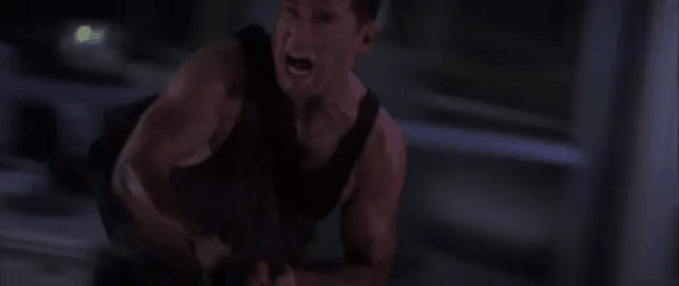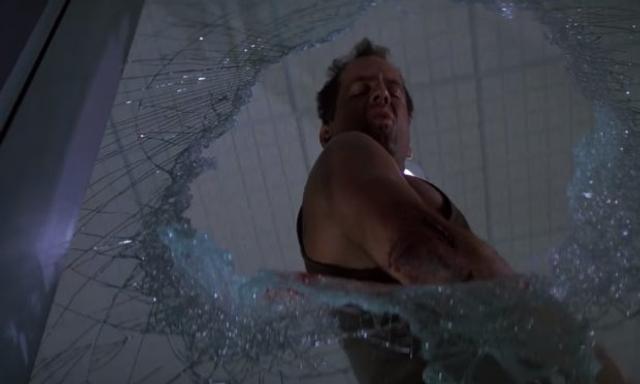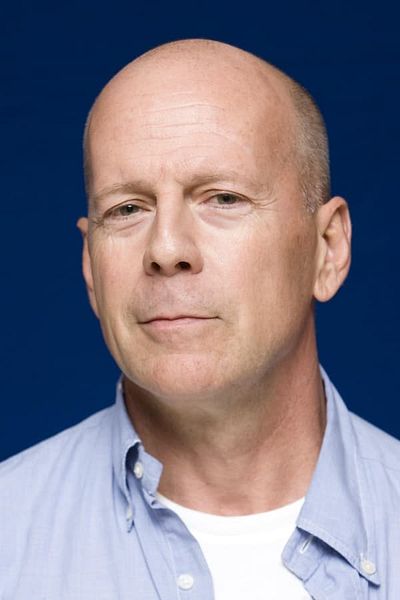It's almost a cliche at this stage to point out just how many films in the action genre are either sequels, remakes, reboots or part of some larger franchise - and how pointless a good number of them are.
The compact between studios and audiences is that when a reboot or remake is pitched to audiences, there's a sense that it'll either add something that's missing from the original or come at from a new perspective. Other times, it's simply harvesting nostalgia and packaging it for new and old audiences alike. More often it seems that studios are kicking on franchises past their sell-by date, either in the hope that they'll hit upon something that'll take with audiences or merely because there's still enough of an audience to justify it.
With Die Hard, it's now a case of the good outweighing the bad. The series began auspiciously with John McTiernan's neatly-directed, raucously entertaining effort in 1988. He was at the height of his creative powers, Bruce Willis was eager to break out from television and Alan Rickman was not yet ingrained in the public consciousness as the grade-A villain we knew and loved him for. In short order came Die Hard 2: Die Harder from Finnish director Renny Harlin and McTiernan back in the seat for Die Hard With A Vengeance. That, we all understood, was it for John McClane and his exploits. After all, the third one saw portions of New York destroyed and anything further would have pushed it past the point of effectiveness. After all, how many times can this happen to the same guy? Where's the cut-off point? Die Hard was built on the foundation of John McClane being average in every way except for his ability to survive and his ability to smoke cigarettes and run up a flight out of stairs without pausing for breath. Instead, what came after these three overwrote what came before. Die Hard 4.0 / Live Free Or Die Hard was a forgettable romp that saw McClane kill a helicopter with a car. Can you even remember the villain? Imagine. A Die Hard film where you can't remember the villain. The less said about our fellow countryman John Moore's efforts with A Good Day To Die Hard, the better.

What made the first Die Hard so effective was how John McClane was sold as a character. He was a blue-collar cop from New York - completely immune to California's bullshit, utterly unimpressed with the corporate trappings of Nakatomi Plaza, and only in town to try and patch things up with his wife. Up until Hans Gruber appears, you'd be forgiven for thinking it was some kind of fish-out-of-water romantic comedy. Of course, it's not before long that he's forced - forced, mind - to spring into action and get to grips with the terrorists in the building. Throughout the film, it's repeatedly hammered home that he is outgunned, outnumbered and trying to even the odds however he can. He plays dirty, he's not above shooting some unarmed, and he'll happily loot dead bodies to keep himself alive. He was scrappy and resourceful, not a guns-blazing super-cop who never got a scratch on him. He was utterly out of his depth when it came to dealing with something like this. He had to improvise wherever he could.
This formula, more or less, was redeployed in the second and third one. Again, he was the right guy in the wrong place at the right time. He was a fly in the ointment and a monkey with a wrench. He never had a plan, but he lived purely just to fuck up the plans of well-dressed supervillains.
A recent report from Deadline has it that Die Hard: Year One is finally going into production, with another actor set to play the younger version of McClane in '70s New York as a hapless beat cop who - you guessed it - finds himself in the wrong place at the right time. Bruce Willis is set to return as McClane and no doubt the story from the past will intertwine with his future. If Willis is to be believed, it's his final outing as John McClane.

In a lot of ways, Die Hard: Year One is in the same boat as the proposed Joker origins movie that is currently being prepped by Todd Phillips with Martin Scorsese hovering overhead. It's utterly pointless, and in a lot of ways, demeans what came before. Like The Joker, we're not supposed to care about McClane before we first meet him. In fact, the first Die Hard goes to great lengths to show us that he's inexperienced in dealing with anything even remotely close to the situation he finds himself in. Sure, he's resourceful and capable, but utterly inexperienced. More to the point, he's supposed to be an everyman. He's supposed to be a nondescript New York cop with a badge and a gun, who has only his wits and his sly cunning to help him. That's what made him such an enduring figure in pop culture. He wasn't bestowed with superpowers, he wasn't a muscle-bound commando, and up until the third one, he never was anything but that. Bruce Willis played him that way - all dry remarks while he's covered in blood and nursing a head-wound. He's not meant to drive cars off bridges to destroy helicopters, nor is he supposed to be mixed up with CIA agents in Russia.
For a lot of people, Die Hard ended with Die Hard With A Vengeance. It's best to keep it that way.




















































































